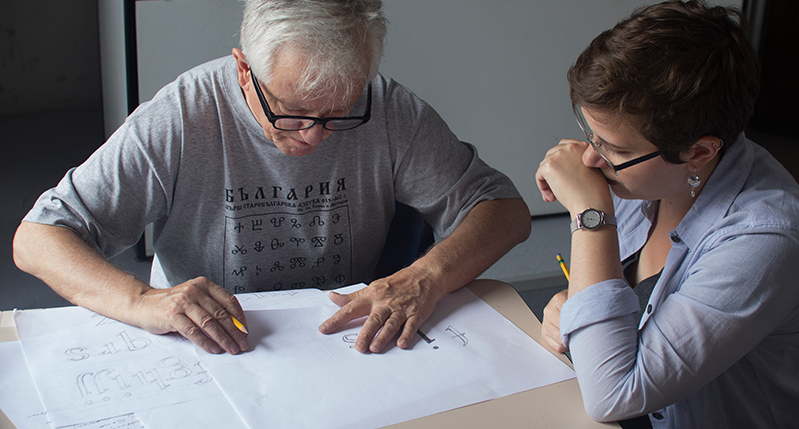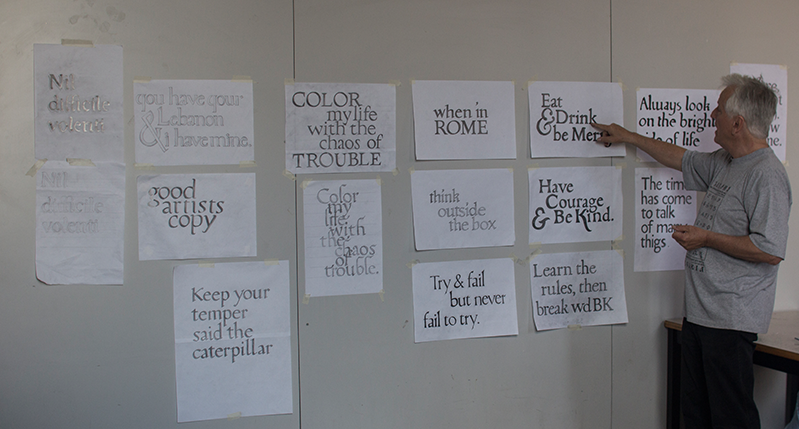Roma Day 7: Letters of Credit, Due
By Claudia de Almeida
Class started early today! By 8:30 am the group was at the school and all ready to go. School closes earlier on Saturday, as a result we had a stop time of 1:30 pm. Five hours to finish a project seems like more than enough time, but when it involves drawing letters by hand without the comfort of the addictive “command Z” (“undo” on an apple computers), that time can fly by very quickly.
Like most designers, and master craftsmen, James Clough had strong feelings about the best materials to use for lettering work: Two regular Number 2 pencils secured by a rubber band, mimicking the wedge pen, this is an excellent tool to quickly sketch the outline of letters and getting an accurate road map of thicks and thins, and a 3b pencil, used to shade in the strokes. Because of the softer lead, the 3b pencil also allows you quickly shade in the outlines drawn with the “parallel pencils”, so you can quickly see how the letter form works with the white spaces within it and around it. It also allows you to build up the weight of the shade on the paper and create a very dark drawing (almost ink like) for a more finalized composition. We used layout paper, vs. the usual tracing paper. Layout paper is more opaque and it has a bit more grip, but it still has enough transparency that allow for layering and working from previous sketches.
The group worked diligently during the morning, working fast and iterating constantly. James roamed the room meeting with each of us individually helping finesse ideas, compositions and letter forms.
A few interesting topics were raised while we worked: While for some of us staying within the constraints of the assignment was natural, for others it was hard to stray from their individuality and own way to interpret letter forms. These two ways of approaching the project allowed for an interesting variety on the final compositions, and gave us an excellent topic for discussion.
Breaking the rules, while risky, can sometimes be rewarding and allow for interesting discoveries and unexpected results. Following the rules and working within the constraints of the assignment, although no guarantee of a successful result, can push you to uncharted territories and allow you to learn a new skill or way of working.
Now we’re off to work on our personal projects, as tomorrow is our first meeting with Louise Fili!




